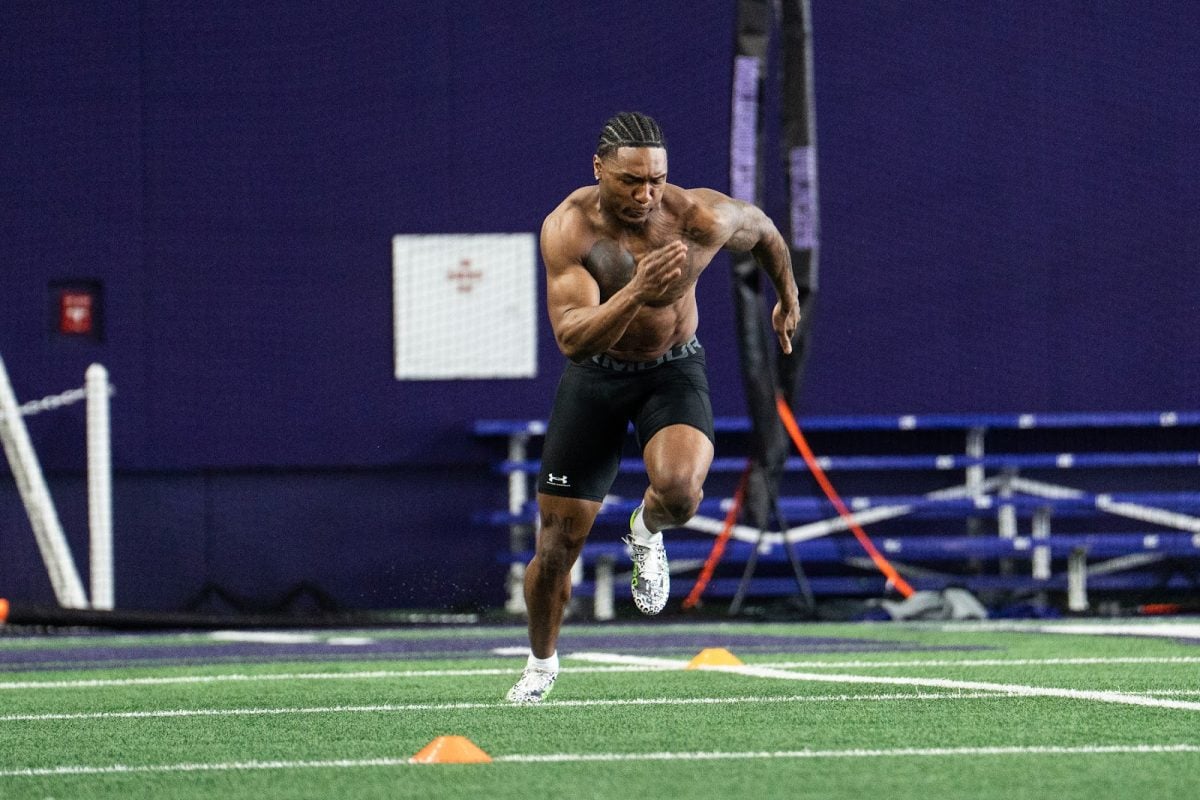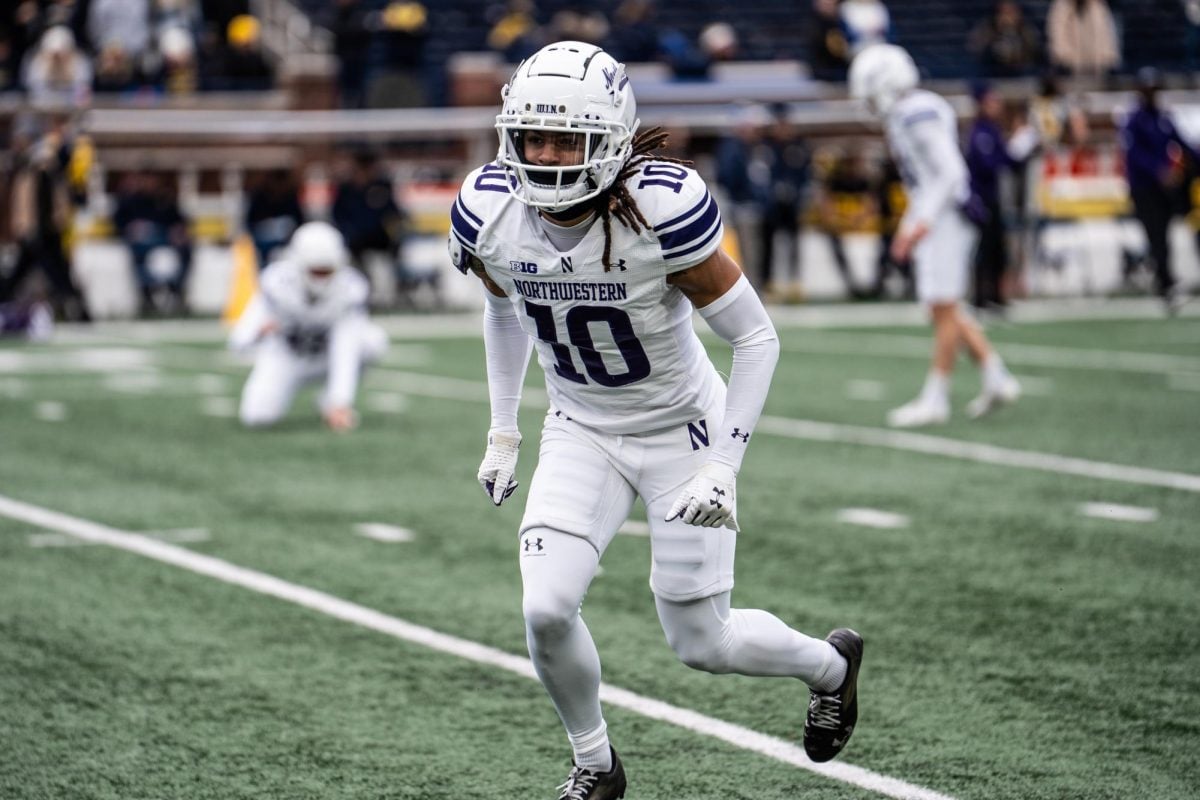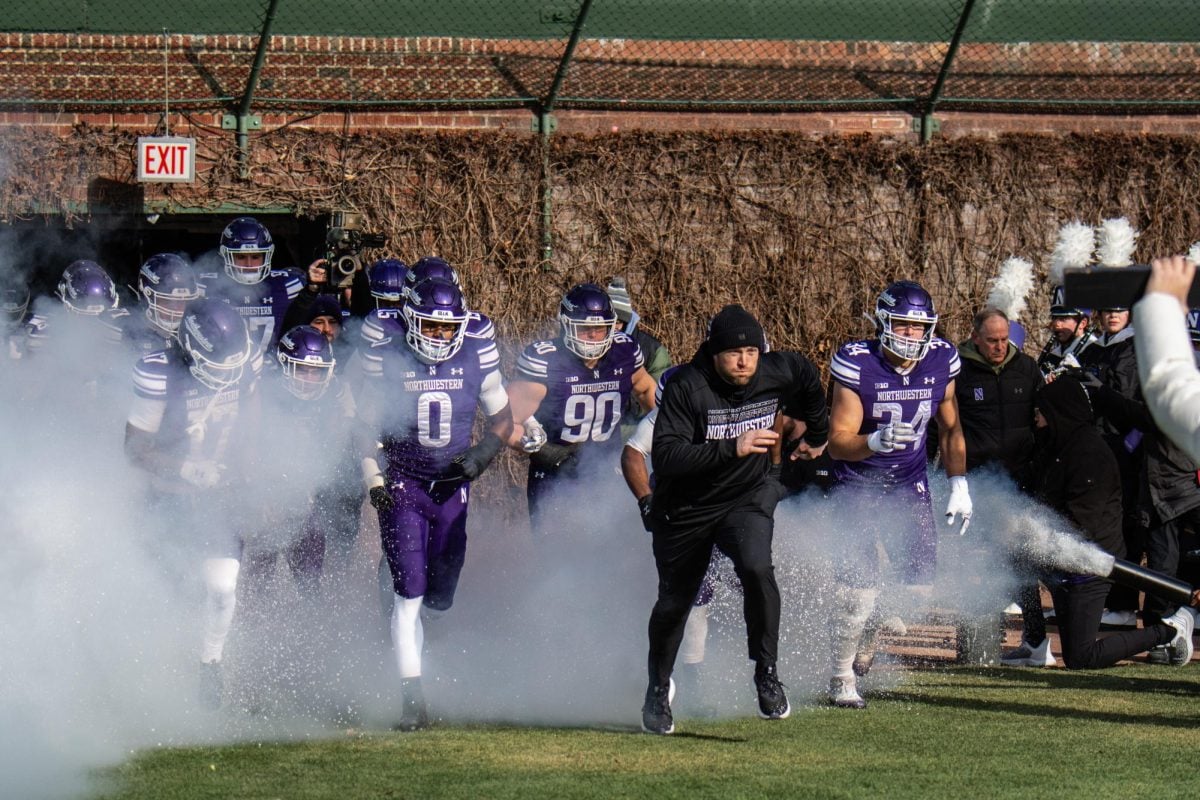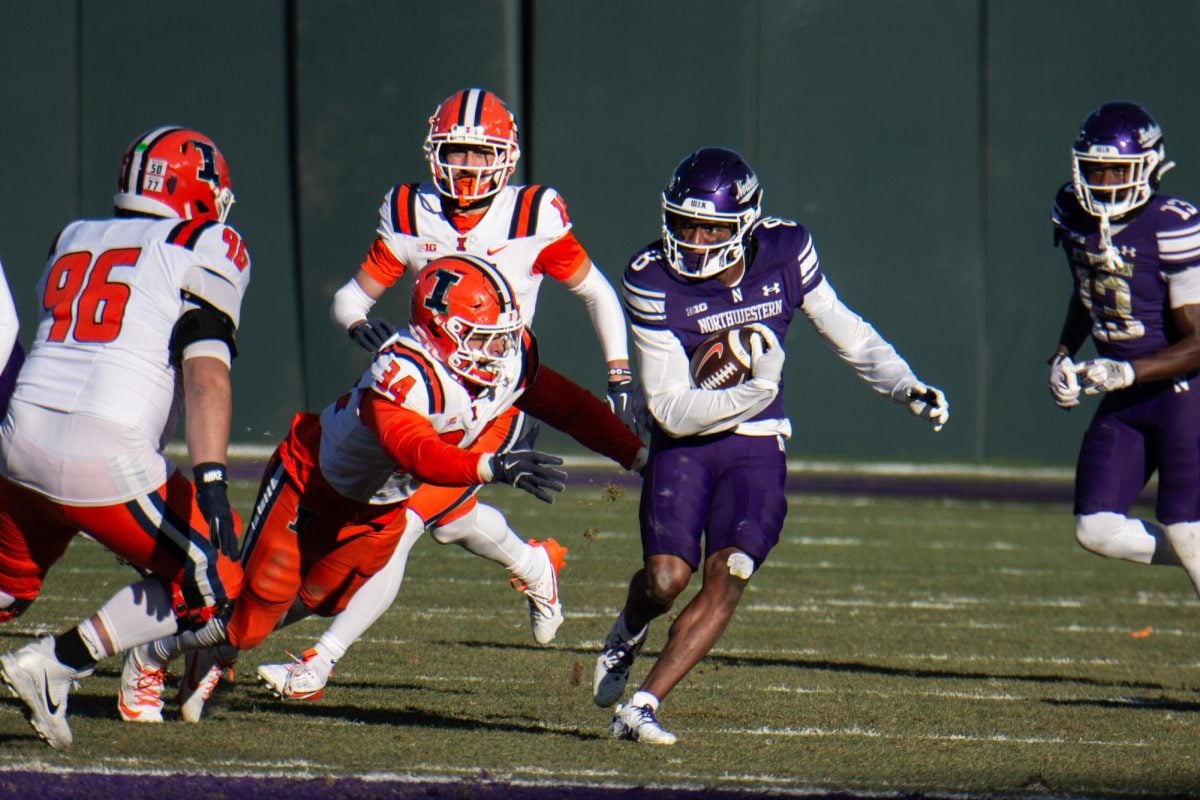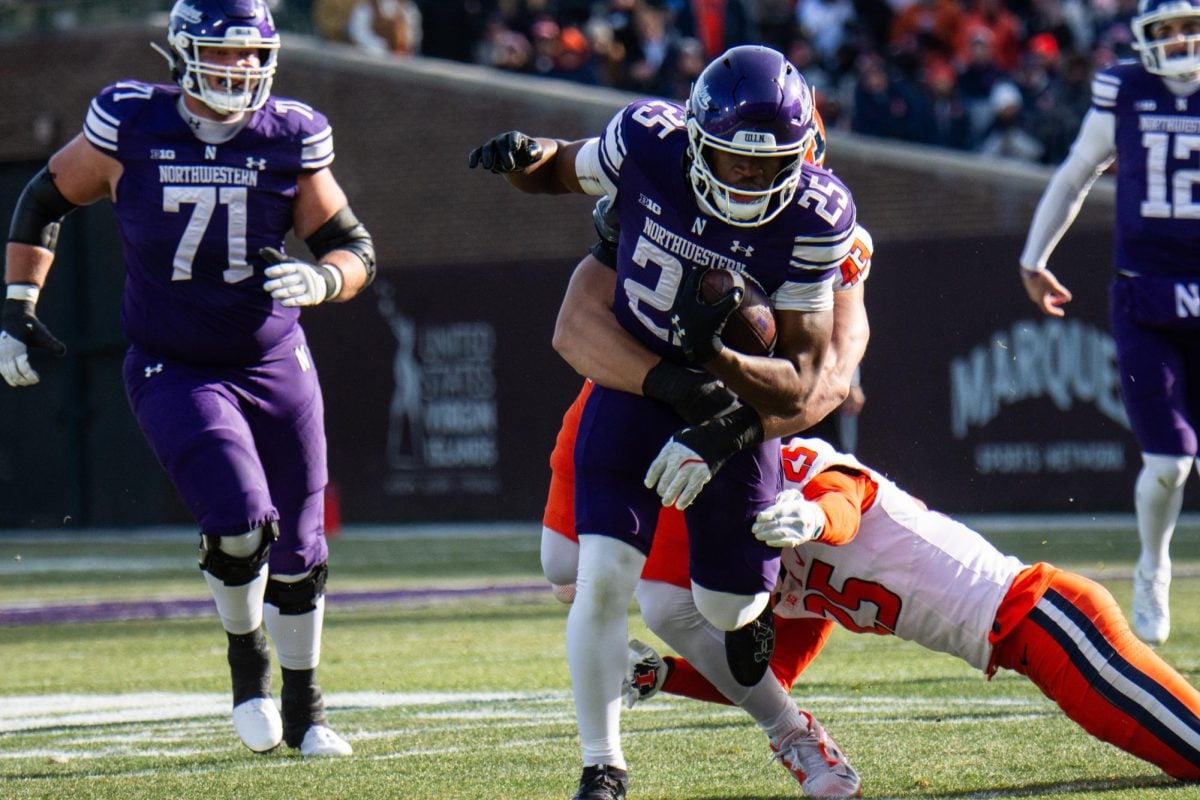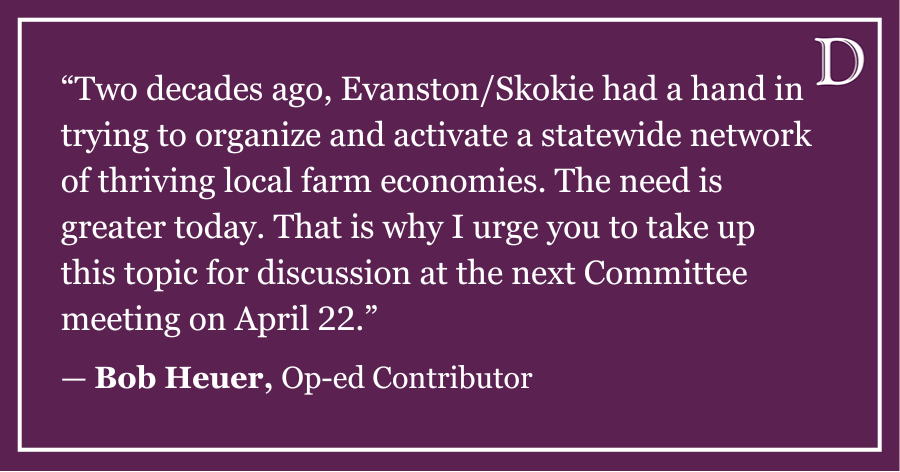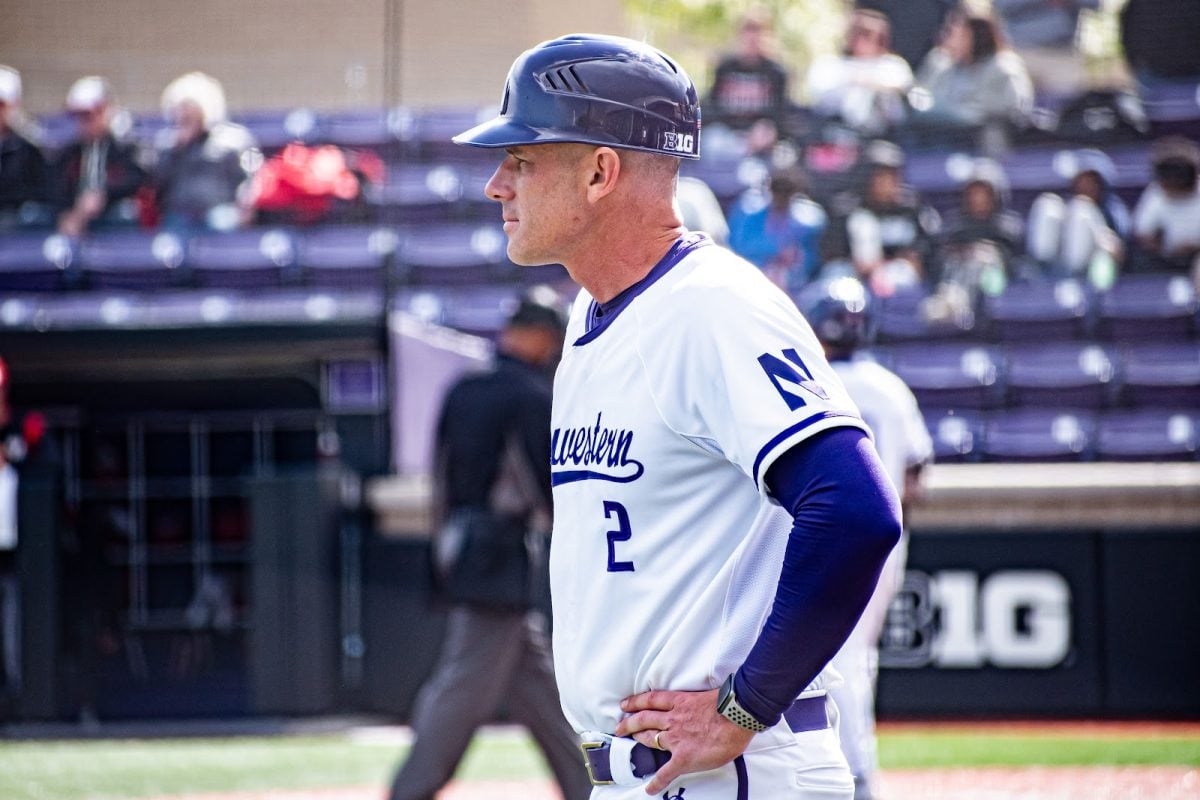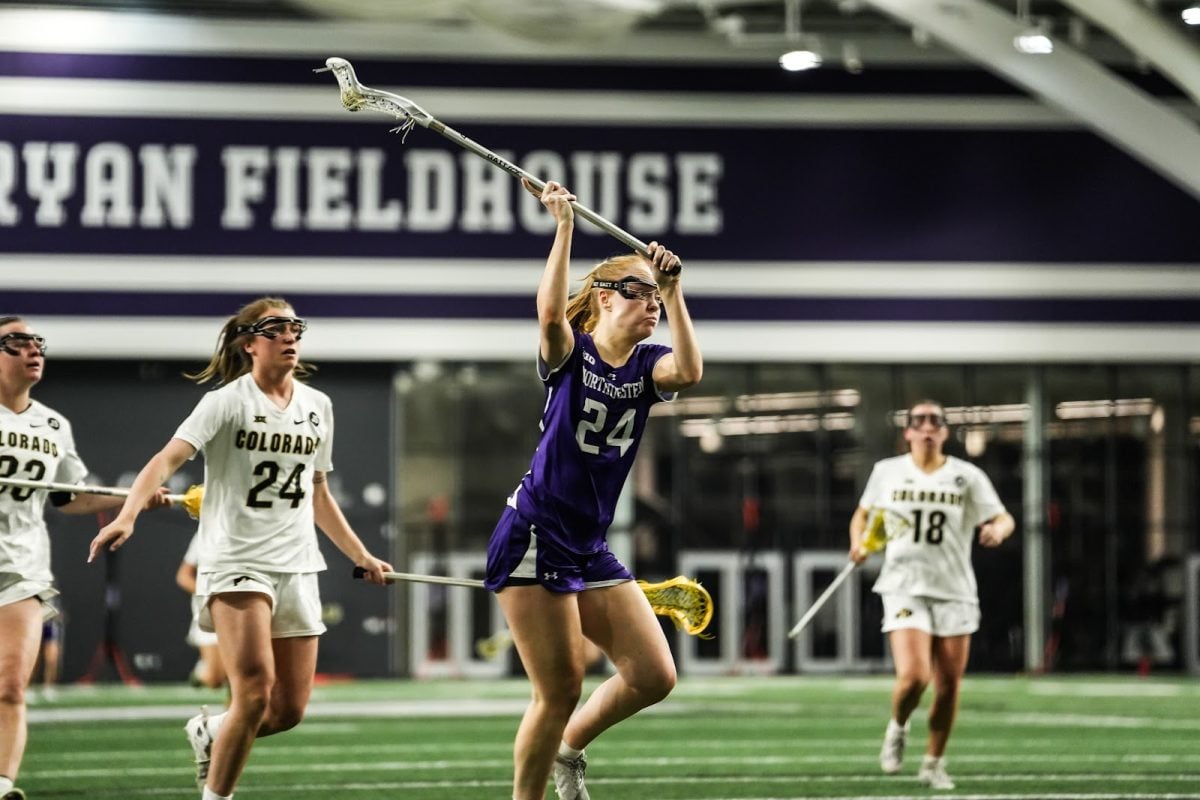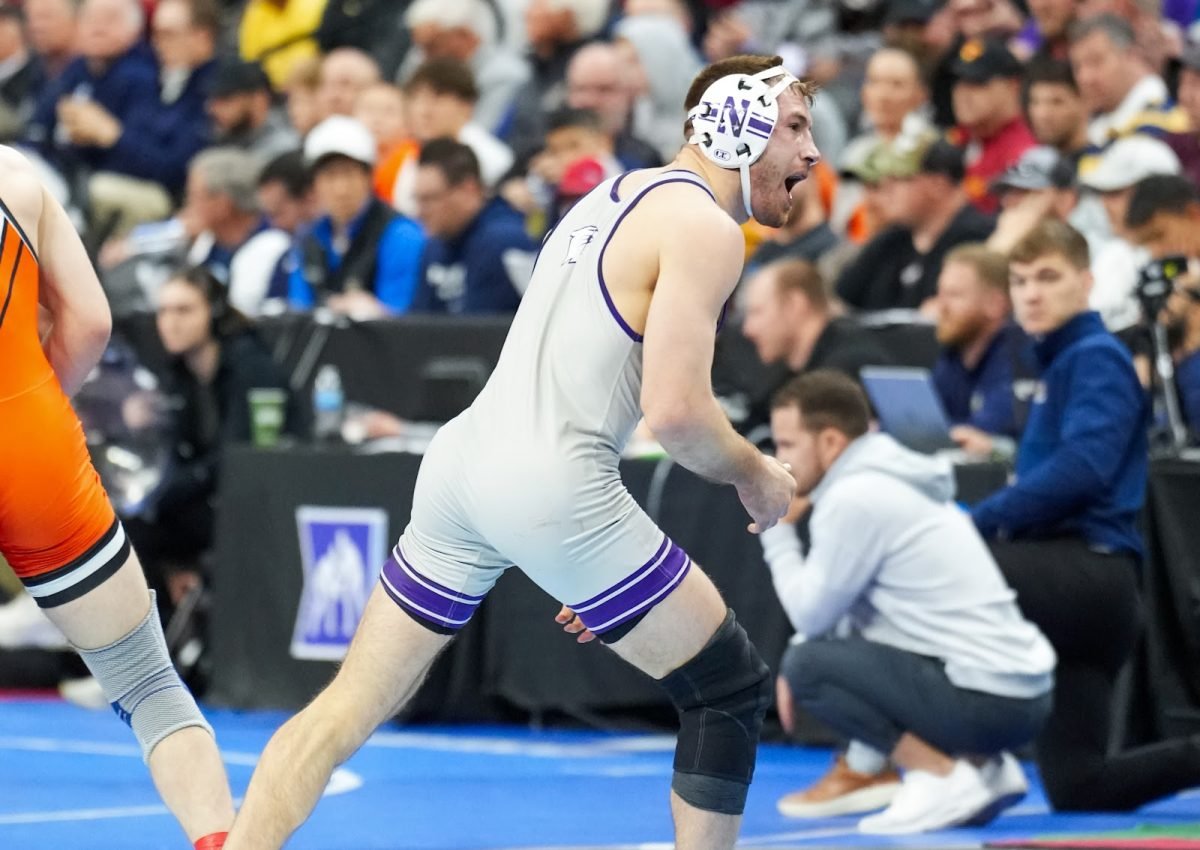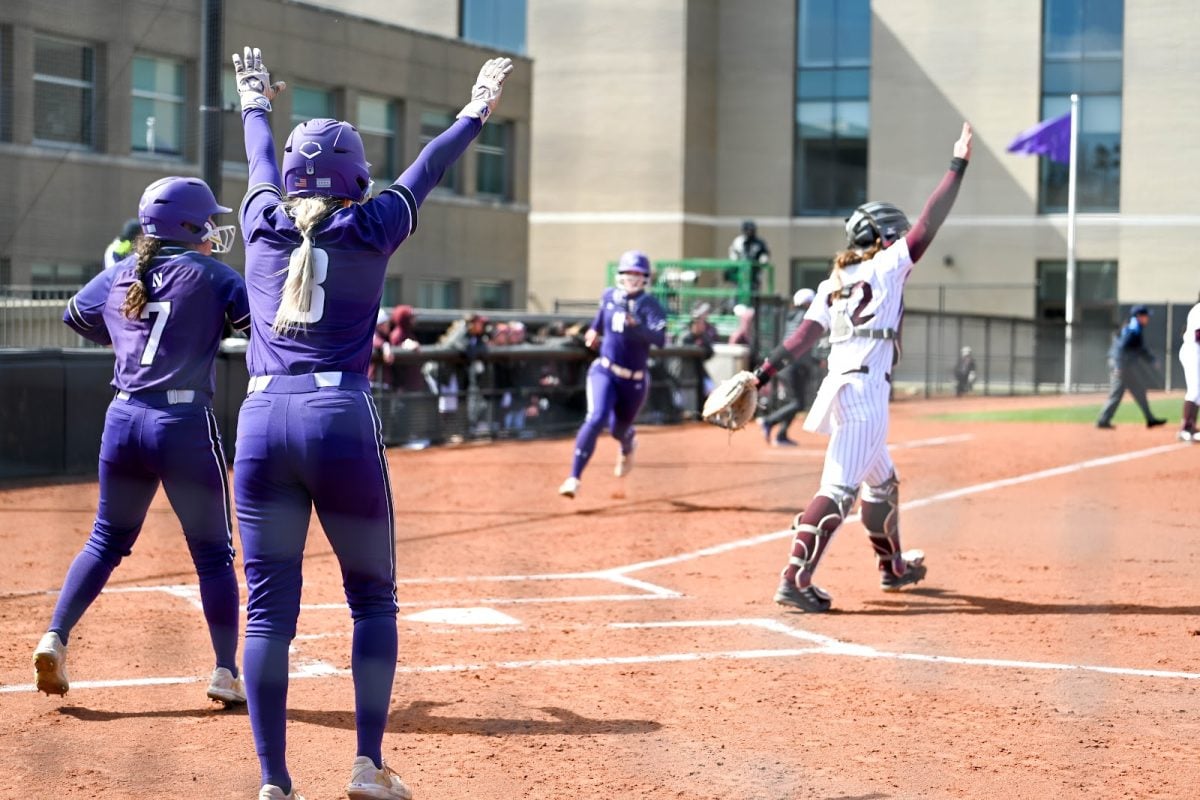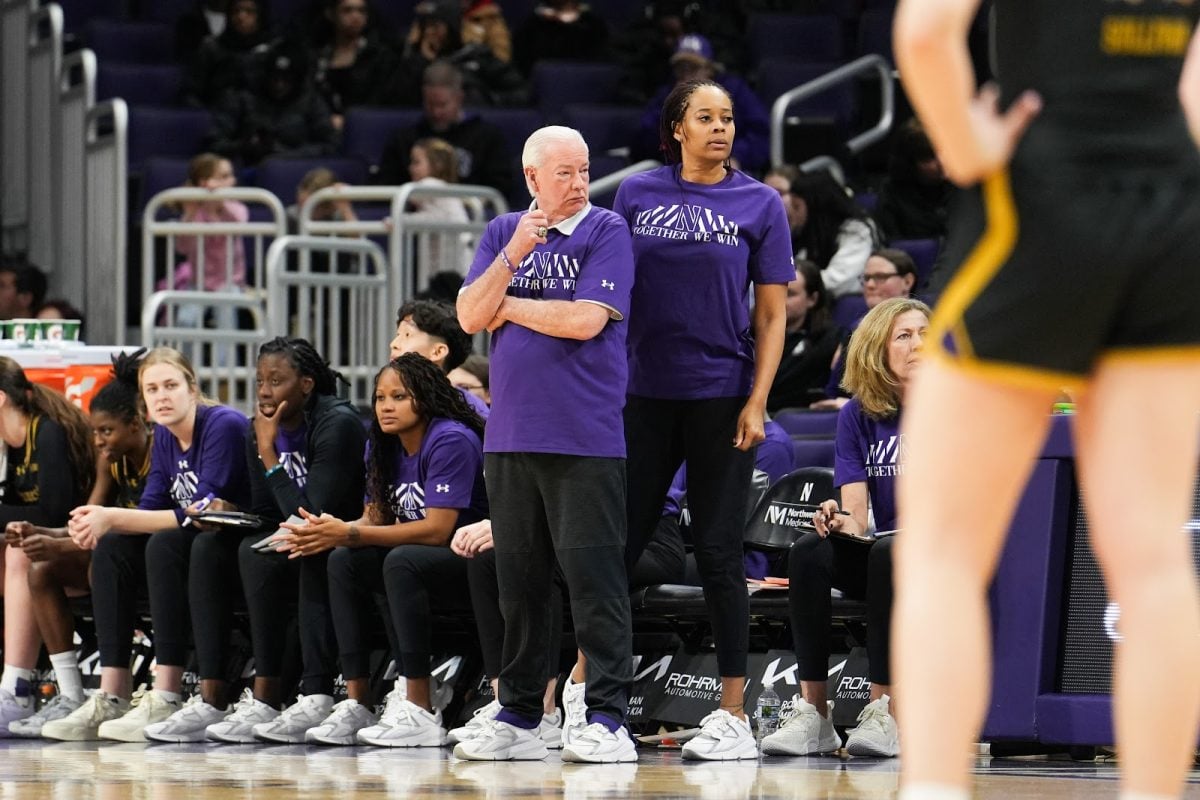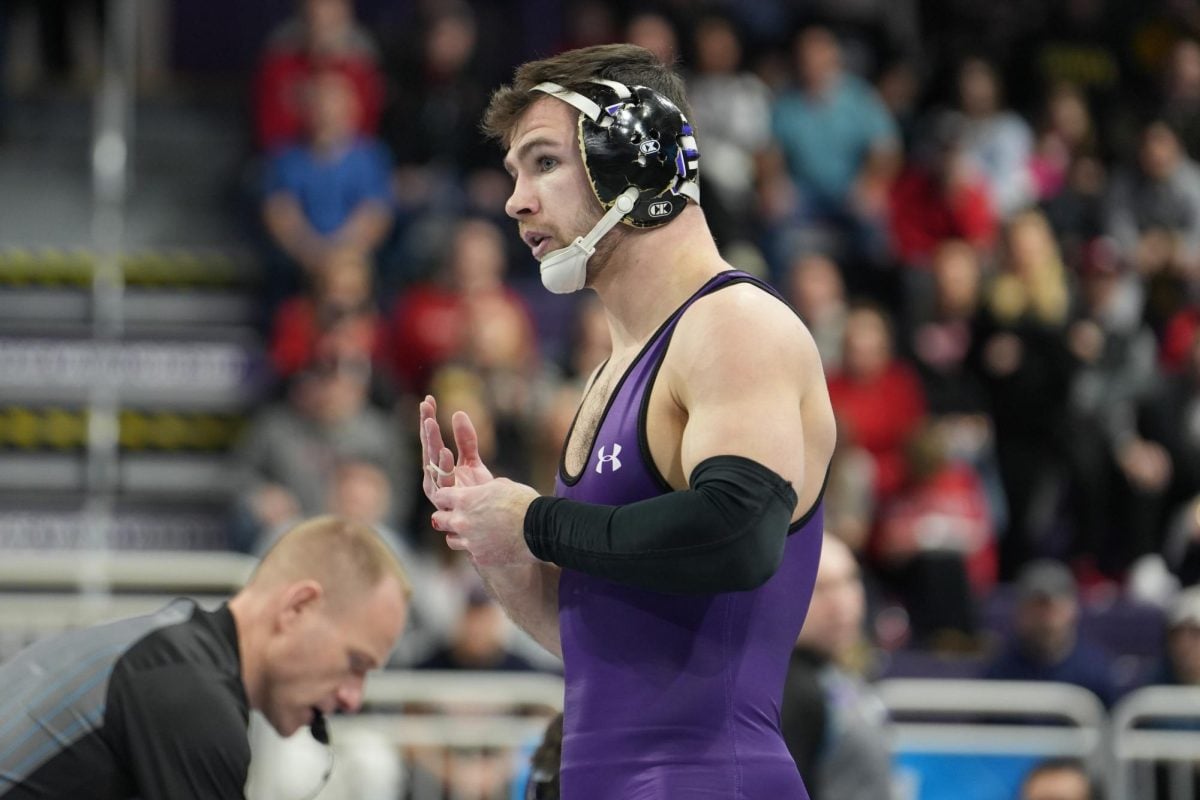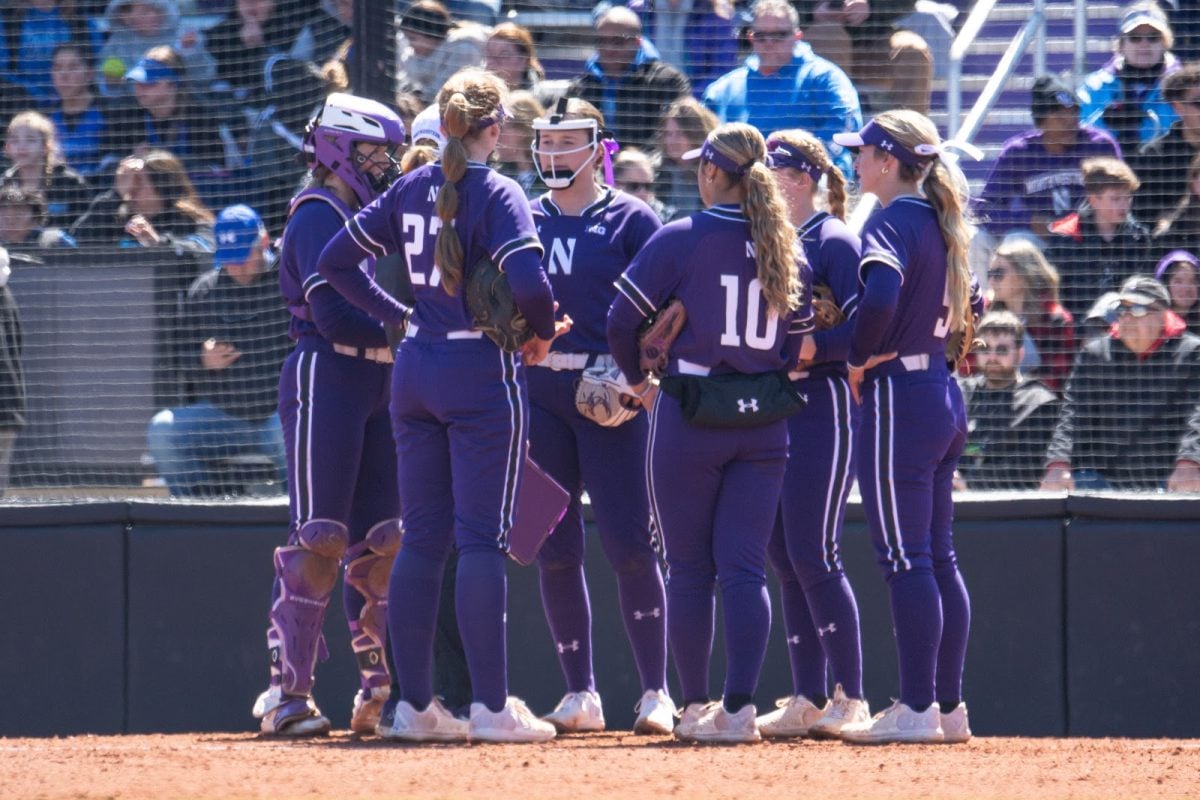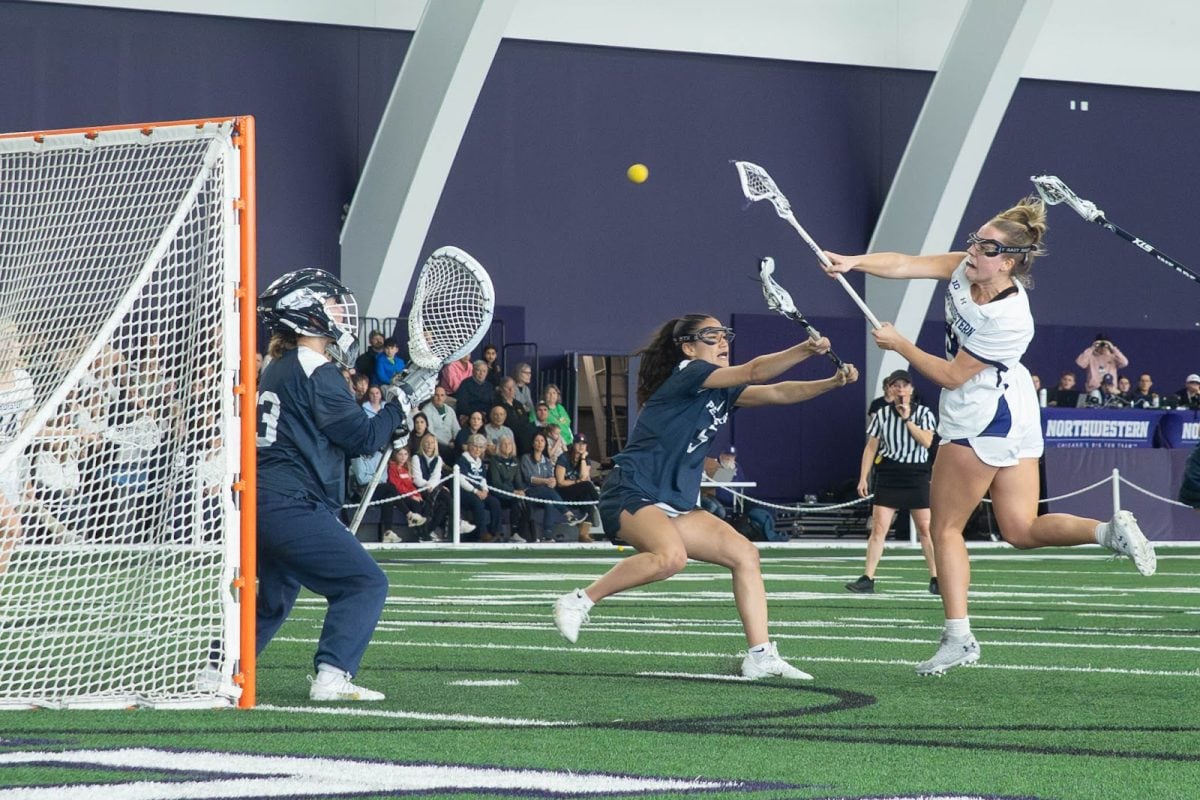Kain Colter testified Tuesday in a National Labor Relations Board hearing to determine whether the College Athletes Players Association is to be certified as a labor union.
The former Northwestern quarterback outlined the Wildcats’ yearlong schedule of workouts and practices then described how football commitments hindered his ability to enroll in classes he wished to take.
“Due to the time demands you can’t ever reach your academic potential,” Colter said. “Football makes it hard for you to succeed (academically). You have to sacrifice one, and we’re not allowed to sacrifice football. We’re brought to the university to play football.”
CAPA, using Colter as its key witness, attempted to establish that football is the key component of a college athlete’s experience, more so than academics.
The hearing began with an introduction from the hearing officer, followed by opening statements by attorneys from both CAPA and NU. CAPA argued the work put in by college football players — and the corresponding scholarship compensation they receive — qualifies them as employees of the university.
(In Focus: From locker room to courtroom: How the union movement came to Northwestern)
“Some refer to the players as student athletes. But they are students and athletes,” CAPA attorney John Adam said. “Being a football player at Northwestern is hard work. And make no mistake about it, it is work. It is a labor of love for these players, but it is labor.”
NU’s attorney, Alex Barbour, refuted that claim, saying the school plans to prove “student-athletes are first, foremost and always students as opposed to employees.” Barbour also questioned the “arbitrary” construction of CAPA’s proposed union, which includes only scholarship football players and pointed out the temporary nature of their employment.
Adam noted CAPA would be happy to hold another vote that includes walk-ons if the NLRB regional director, who will decide the case, deems that appropriate.
After a recess, Colter took the stand. He described his high school sports career and subsequent college recruitment process. He then began a long line of questioning regarding the football team’s schedule at various points during the year.
Colter, who has exhausted his athletic eligibility and plans to graduate in March, said players spend as many as 50-60 hours per week on football-related activities during training camp, 40-50 during the season and slightly fewer through winter workouts and offseason practices.
The testimony served to emphasize the structured nature of players’ lives. Colter mentioned only being allowed to take six-week summer classes and having to cut short a summer internship to be ready for training camp.
“I absolutely hate when people use the term ‘free ride,’” Colter said. “I believe that we earn everything that we are given through blood, sweat and tears, sacrificing our bodies and working hard throughout the year.”
Colter went on to describe his experience as an aspiring pre-med student. He said football practice prevented him from taking the required chemistry classes for several quarters, and he ended up behind on the pre-med track.
CAPA also referenced ways schools control the players’ activities and images. Specifically, Colter said the team monitors athletes’ social media accounts and once even asked him to remove a potentially controversial tweet. He noted the NCAA rules preventing him from profiting from his own image, contrasting that with the sale of his No. 2 jersey on the NU website and the use of his likeness in video games.
Once CAPA’s lawyer finished questioning Colter, NU’s side followed up with a flurry of its own inquiries.
Attorney Anna Wermuth asked Colter about his academic record, hoping to paint the psychology major as a strong student who accomplished much academically because of his time at NU. She further pointed to other skills his football career taught him, such as leadership skills and critical analysis.
Wermuth also had Colter affirm ways walk-ons and scholarship players are under the same set of rules, presumably to cast doubt on the selection of CAPA’s proposed union. She also attempted to establish that academics had influenced Colter’s college choice during recruitment.
NU looked to undermine Colter’s earlier testimony that he received $75,000 a year, including the tuition covered by a scholarship and an additional stipend. The school distinguished between that money and traditional income by asking whether Colter paid taxes on the money. The 21-year-old responded that his mother did his taxes.
One of NU’s most convincing points came regarding an internship Colter had with Goldman Sachs one summer. On his resume for the position, the quarterback promoted himself by citing skills he developed playing football, including as a member of the team’s Leadership Council. The implication was players do in fact benefit in career and earning potential from their football career, making athletics part of the general education experience.
CAPA, on the other hand, used the Leadership Council to demonstrate the coaching staff’s absolute power over the players, saying even though the council ostensibly makes decisions, coach Pat Fitzgerald has 51 percent of the final say.
In an interview with The Daily on Tuesday, University President Morton Schapiro reiterated NU’s position that it respects the players’ leadership but disagrees they are University employees.
“We try to produce leaders with courage, and even if you don’t necessarily agree with the direction they lead, you gotta respect them,” Schapiro said. “It would be very disingenuous of the institution to say, ‘You should be a leader, but not in that area.’”
Schapiro said he was not surprised the movement started at NU, noting few other private schools play in the Football Bowl Subdivision. If the players are successful, the ruling would only apply to private schools because public ones are governed by state labor laws.
The hearing will resume Wednesday morning when a sports economist will testify as CAPA’s expert witness.
Email: asputt@u.northwestern.

